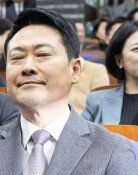China Shock Hits the Textile Business
China Shock Hits the Textile Business
Posted April. 27, 2005 23:17,
Korea Silkroad, a middle size textile company that exports polyester to China, Russia, Turkey and other countries, has waived business with a major importer, Turkey, since last month.
The reason is that it has become increasingly difficult to compete with low-price Chinese products, once the textile quota system was abolished worldwide this year.
During the last five years, Korea Silkroad has been exporting polyester at $2.00 per meter. With the rise of production costs, such as the current high oil prices, it tried to raise the exporting price, which was declined by the importer, who chose Chinese products costing less than $2.00 per meter.
Korea Silkroads deputy general manager Lee Sun-yeol explained, Our products are far better, but foreign buyers try to bargain, comparing our price to Chinese prices. Since it is impossible to compete with Chinese products in the middle price area, we are changing our business model to high-end products.
Chinese Products Sweeping the Foreign Textile Market-
Low price Chinese products are hitting the textile industries of other Asian countries, such Korea, Hong Kong, and Taiwan, and taking a huge chunk of the worlds textile market.
According to the Ministry of Commerce, Industry and Energy, on April 27, Koreas textile exports in this first quarter (January-March) amounted to $3.19 billion (about 3.19 trillion won), which is a $210 million (or 6.1 percent) decrease compared to the same period last year.
In particular, the exports of clothes were $517 million, plunging 21.5 percent compared to last years same period.
Korean market share of the U.S. textile market, a major importer of Korean textiles, between January and February of this year was 2.4 percent, or a 0.7 percent fall from last years 3.1 percent.
In contrast, Chinese market share during the same period has jumped 7.6 percent, from 18.8 percent to 26.4 percent.
The KTTA (Korea Textile Trade Association)s general manager Kim Gyeong-hwan pointed out, The Chinese textile manufacturing technology is rapidly advancing due to the transfer of technology by Korea textile companies that moved to China.
Korean Textile Industry In a Predicament-
The abolishment of the textile quota system is not the only problem facing Korean textile exporters. High oil prices, the decline of the won-dollar exchange rate (rise of the won), and financial problems caused by banks collecting loans are some of the difficulties tormenting the industry.
According to the textile industry, due to the soaring prices of oil this year, the production costs of chemical textiles derived from oil have risen by an average of 20 to 30 percent. In addition, with the fall of exchange rates, sales in won have also fallen.
The industry is in a difficult situation where they cannot meet profit expectations without raising exporting prices, but they cannot do so because of the fierce competition from low-priced Chinese products. In other words, they are caught in a predicament.
Banks collecting their loans have also been pointed out as a serious problem.
President Kim of an anonymous company in Daegu spoke his mind, saying, Banks have a pessimistic view on the textile industry and are lowering their credit rate or trying to collect loans as soon as possible. In order to product competitive products, continuous investment in R&D is needed, but such actions by financial institutions only aggravate the textile industrys difficulties.
Textile Quota System-
A system created by developed countries, including the U.S. and European countries, in 1974 to protect their domestic textile industries allotted a quota to textile exporting countries. But with the spread of free trade, the World Trade Organization (WTO) concluded the 1995 Textile Agreement and steadily reduced the quota system, completely abolishing it on January 1 of this year.
Chang-Won Kim changkim@donga.com







